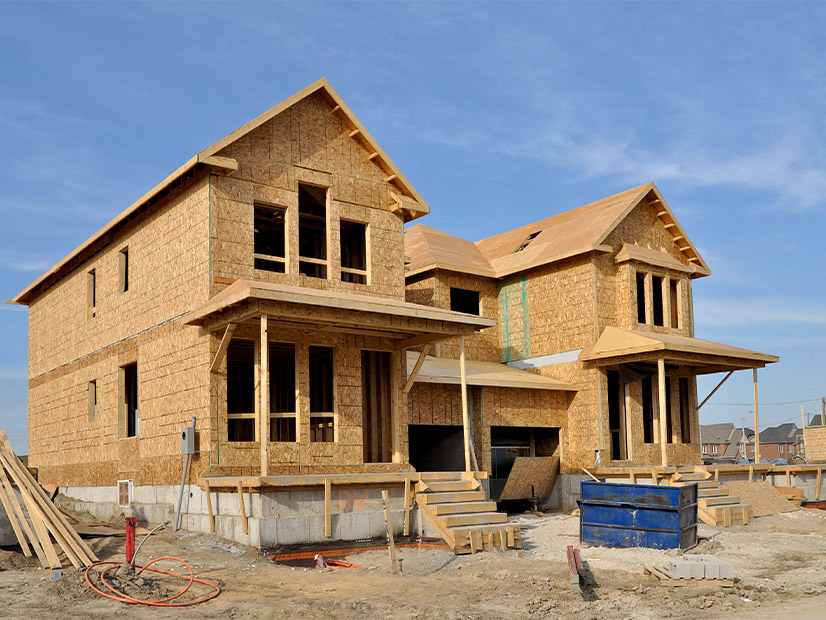
Massachusetts is moving forward with a building energy code proposal that has been broadly challenged by legislators and environmental advocates who say the state is not going far enough to reduce fossil-fuel use in buildings.
The Department of Energy Resources filed draft regulations Friday with the Secretary of State for its update to Massachusetts’ building codes, which includes an update to base and stretch energy codes and a new, specialized opt-in code for net-zero building performance standards. The actions are required by the Next Generation Roadmap climate law passed in 2021.
A straw proposal on the matter released earlier this year was met with widespread criticism, largely because the proposed specialized opt-in code, which is supposed to be the most aggressive option that municipalities can adopt, does not allow cities or towns to mandate that all new construction be fossil-fuel free. (See Mass. Net-zero Building Code Proposal Faces Barrage of Criticism.)
The draft language for residential and commercial construction doubles down on that proposal.
In a summary of the proposal, DOER said that it recognized in drafting the specialized code that many building construction sites and high-rise structures do not currently lend themselves to achieving net-zero status. The specialized code, which municipalities can opt to adopt, allows fossil fuels in new buildings if they also include solar and are “designed with electric service and wiring sufficient for future electrification of space and water heating as well as any combustion equipment appliance loads,” DOER said in a summary of the proposal.
During the public comment period for the straw proposal, many local officials asked that the state allow municipalities to require fossil-free, all-electric buildings.
The stretch code is less ambitious than the specialized opt-in, but it still contains stronger requirements than the base building code. The proposed update to it, which would apply to the hundreds of towns in Massachusetts that have already decided to use the stretch code, increases the energy efficiency requirements for several types of new construction.
By 2024, it would require a Home Energy Rating System score of 45 for all-electric homes and a more stringent HERS 42 score for homes with any use of fossil fuels.
It also sets new standards for a Passive House pathway, adds ventilation requirements and requires that one parking space per home or a minimum of 20% of spaces in a new multi-family parking lot be wired for electric vehicle charging.
DOER will take public comments on the draft language through Aug. 12, with three public hearings scheduled in July and August.


